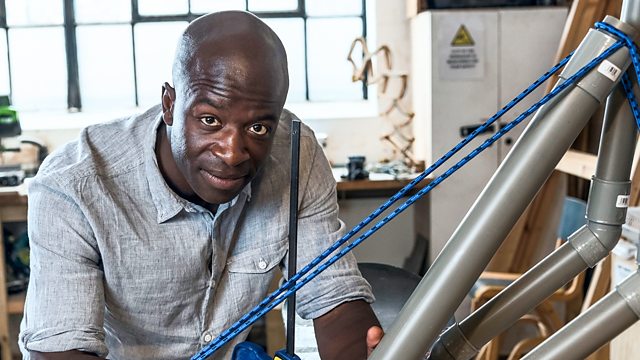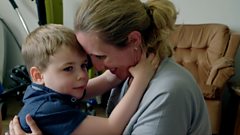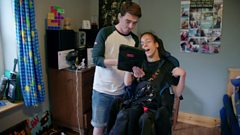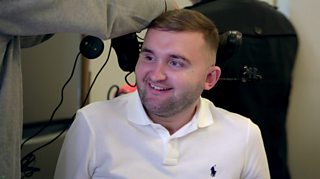
Episode 2
The inventors help the parents of a child who suffers life-threatening seizures, an elderly lady who is struggling to remain independent, and a disabled man who dreams of sailing.
The inventors take on three emotionally charged problems and attempt to create solutions that will change lives.
Four year old William has a rare form of epilepsy which causes him to have multiple seizures, some of which are life-threatening. These seizures can happen at any time and are particularly frequent at night. With doctors unable to control them through medication, and no seizure alarms suitable for him, his parents have to take it in turns to watch him around the clock. Lack of sleep and constant worry over the last four years has left them both desperate for help. Designer and technologist, Haiyan Zhang, bravely agrees to take on one of the most emotionally charged problems of the series. Can she come up with an invention that will help William’s parents to monitor him and ease the pressure they’re under?
19-year-old Ian was born with cerebral palsy which has left him with no control of his body and an inability to speak. Since he was a child one of his greatest pleasures has been sailing – an activity he used to enjoy with his dad before he was killed in a car accident three years ago. Now Ian goes out on the water with a friend who has fashioned a rudimentary system, using a rear view mirror and some basic signs, so that Ian can signal directions to him using his eyes. This allow him to have some involvement in navigating the boat, but what he really wants is to have complete control of the vessel. Engineer, Ryan White, and Experience Designer, Ruby Steele, team up to see if they can come up with a solution. If they’re successful it’ll be the first time anyone has ever sailed a boat using just their eyes. They’re hopeful that their idea to use the eye gaze technology that Ian already uses to operate his computer will work if they hook it up to motors on the boat. But when they try the technology outdoors they discover that the glare of sunlight renders it useless. It’s back to the drawing board, but neither of them are willing to give up.
66-year-old Susan has multiple sclerosis and has lives alone. She was diagnosed with the disease when she was 40 years-old and, as the symptoms have worsened over the years, she has worked hard to maintain her independence. Carers visit her twice a day to help her get in and out of bed and perform basic tasks, and her daughters visit regularly, but for much of the day she is on her own. Her flat has been kitted out with a range of assistive technology, but most of it is not fit for purpose. She has a tablet computer which she struggles to operate due to tremors in her hands, and a computerised system to operate the telephone and various electrical items, which are difficult to navigate and hard to read as her eyesight is failing. Ruby’s initial thought is to use the latest smart technology so that Susan can operate systems using her voice. But like many older people, she’s not familiar with this latest technology and knowing how to navigate it and what commands to use is incredibly confusing. Ruby needs to find a way to make smart technology more accessible for people like Susan. If she can crack it, she could help her to remain living in her own home, and potentially help thousands of other elderly and vulnerable people to avoid loneliness and continue living independently.
Last on
More episodes
Clips
-
![]()
Meet William - the five year old with epilepsy
Duration: 03:12
-
![]()
Helping Ian to do what he loves
Duration: 01:20
Credits
| Role | Contributor |
|---|---|
| Expert | Ross Atkin |
| Expert | Akram Hussein |
| Expert | Zoe Laughlin |
| Expert | Yusuf Muhammad |
| Expert | Jude Pullen |
| Expert | Ruby Steel |
| Expert | Ryan White |
| Expert | Haiyan Zhang |
| Executive Producer | Ros Ponder |
| Executive Producer | Tom Watt-Smith |
| Producer | Itamar Klasmer |
| Production Manager | Eleanor Roffe |
| Editor | John McAvoy |
| Production Company | Studio Lambert |
| Executive Producer | Mick Ebeling |
| Executive Producer | Caskey Ebeling |
| Production Company | Not Impossible Labs |
Engineers have been improving lives since ancient times - explore further with The Open University
Visit OpenLearn, the OU’s home of free learning, to learn more about engineering.
Short Films from 91�ȱ� Teach
Charities and Organisations
A list of charities and organisations that supported production.



